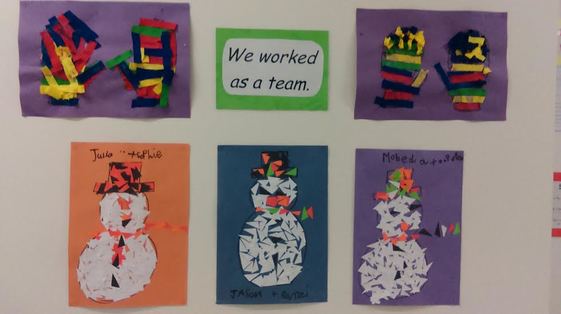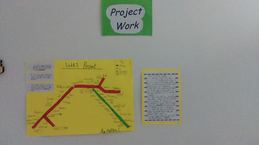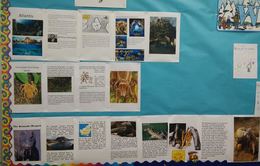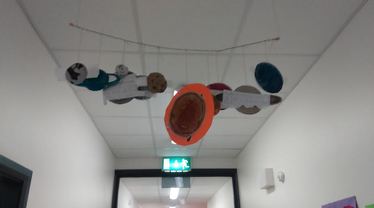Reading Recovery
Reading Recovery is a school-based, short term, early literacy intervention. It is designed for children in senior infants and first class (aged between five years nine months and six years six months) identified as the lowest literacy achievers following one year at school. It is an evidence-based intervention that has been, and continues to be, thoroughly researched and is accredited by University College London (UCL).
Children are taught individually by a specially trained teacher for 30 minutes daily, for 12-20 weeks. This individually designed series of lessons is responsive to the strengths and needs of each child. Close observation informs skilled teacher decision-making. The goal is for children to become effective and efficient literacy learners able to work within an average range of classroom performance.
Click here to find out more about Reading Recovery: https://new.express.adobe.com/webpage/EjOf0LHwBygJo
Some of the students have been working on their social skills such as turn-taking, sharing, using kind words and working together. Here is some of their winter art they made as a team.
Some of the students have been working on projects to improve their literacy and I.T. skills. Here are some of their finished projects:
ENGLISH AS AN ADDITIONAL LANGUAGE - EAL
Since the foundation of Thornleigh ETNS in 2007, we have always welcomed children and their families who hail from a variety of countries around the world. It is our belief that these children bring something extra to our school and in creating a multi-cultural school environment, we are lucky to work, learn and play in a very special place.
With multiculturalism comes a multi-lingual environment. Here in Thornleigh we are lucky enough to be immersed in a rich diversity of languages, from Eastern Europe, the African continent, Asia and the Middle East.
While accepting of and welcoming of ‘home’ languages, we also pride ourselves on our inclusivity. For all children to be included and have an equal voice, we teach and encourage the use of English as the common spoken language of our school. For those children who have English as an additional language (EAL) we provide extra support in the classroom and occasional withdrawal groups.
Over the eight years since the school opened, we have found that teaching English to children with a home language is most effective when done through activities. Some of these activities have included sport, gardening, visits to local amenities and cooking and baking.
Over the last term, two of our members of staff have undertaken a cooking and baking club with a group of children from third to sixth class for whom English is an additional language. The children have learned new vocabulary, improved their spoken grammar and increased their confidence in speaking English.
Below are some pictures of some of the yummy things they have produced.
With multiculturalism comes a multi-lingual environment. Here in Thornleigh we are lucky enough to be immersed in a rich diversity of languages, from Eastern Europe, the African continent, Asia and the Middle East.
While accepting of and welcoming of ‘home’ languages, we also pride ourselves on our inclusivity. For all children to be included and have an equal voice, we teach and encourage the use of English as the common spoken language of our school. For those children who have English as an additional language (EAL) we provide extra support in the classroom and occasional withdrawal groups.
Over the eight years since the school opened, we have found that teaching English to children with a home language is most effective when done through activities. Some of these activities have included sport, gardening, visits to local amenities and cooking and baking.
Over the last term, two of our members of staff have undertaken a cooking and baking club with a group of children from third to sixth class for whom English is an additional language. The children have learned new vocabulary, improved their spoken grammar and increased their confidence in speaking English.
Below are some pictures of some of the yummy things they have produced.



